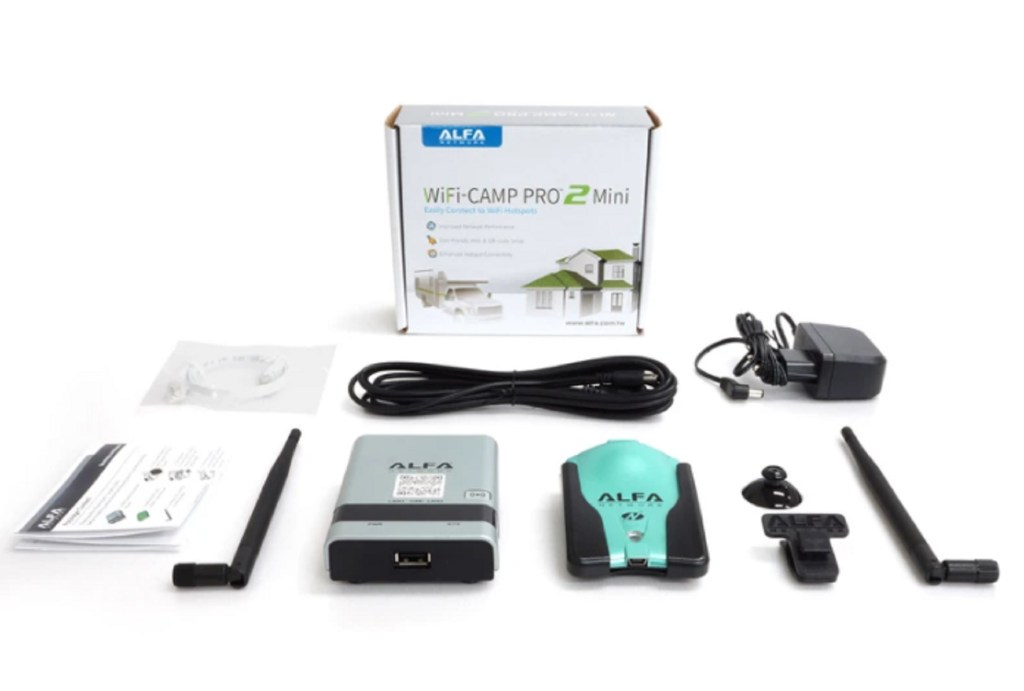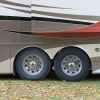
How Can You Get Internet in Your RV or Camper Van?
Whether you want to stream Netflix on long trips or share a few lunchtime photos, the increasing availability of in-car WiFi makes it easy these days. However, considering where camper vans and RVs can roam, giving them reliable Internet access is arguably even more crucial. And not just because more people are using RVs as mobile workstations. So, if your #vanlife or RV travels require a strong Internet connection, what are your options?
Some RVs and camper vans already come with WiFi and mobile Internet

Getting Internet in your camper van or RV might be as simple as flicking a switch. That’s because, just like cars, more and more RVs now have standard built-in WiFi. It’s available on Earthcruiser’s van builds, for example. Some rental companies offer it in their camper vans, too, Outside reports. And even a few truck bed campers, such as Scout’s products, come with WiFi.
However, just like in cars, not all RV Internet setups are identical. Some, for example, are based on mobile/cellular signals, just like the 4G/5G your smartphone uses. Others rely on geosynchronous satellites to get you online. But regardless of the signals’ origin, an RV’s or camper van’s WiFi system still requires a router, modem, and an antenna/receiver. In that regard, it’s fairly similar to your home Internet setup.
If your RV or van already comes with those components, getting on the ‘Net just requires paying a data bill. Someone building their own camper van or buying a less expensive and/or older RV, though, has some work to do.
Can you add WiFi to an existing RV or camper van?
As noted above, the average RV Internet setup mostly boils down to getting a receiver, a modem, and a router. And luckily, you can get all three things with one device: your smartphone. Just tether it to your computer, and as long as it has a signal, you’re online.
However, tethering a laptop to a phone chews through data and battery life rapidly. And the more data you use, the slower your RV’s Internet often becomes. So, if you need Internet access across multiple devices and/or are working from home, get a mobile hotspot, Outside suggests. Like your smartphone, it works as a receiver, modem, and router, and you can order it from your wireless provider. Plus, a mobile hotspot has significantly more battery life than a phone.
Installing satellite Internet in your RV is slightly more complicated. While cellular devices are fairly compact, you need a roof-mounted dish to pick up satellite signals. Though admittedly, these dishes are often foldable to make them more compact. But although the satellite Internet network is larger than the cellular one, you still need an unobstructed view of the sky to get the best reception. And even then, because satellite signals have farther to travel, upload and download speeds are significantly slower.
If you can’t make your own WiFi signal, boost a weak one

However, there is another way to put WiFi in your camper van: use someone else’s Internet. Some boondocking sites have public Internet. And if you’re parked in an urban environment, you might be able to use a restaurant’s or café’s WiFi. That is if the signal is strong enough. Or rather, if you can reliably pick up even the weakest signals.
And to make the latter task easier, you can upgrade your RV or camper van with WiFi boosters, aka ‘WiFi extenders.’ They’re essentially antennas with dedicated routers that ‘boost’ the strength of any WiFi signals in the area, The Drive explains. Plus, there are similar extenders available for cellular signals, Classic Vans says. However, both only enhance existing Internet signals—they don’t create them.
In short, you have multiple options when it comes to getting online in your van or RV. Which one you pick depends on your planned route and allowable budget. If you’ll be away from RV sites most of the time, for instance, a WiFi extender doesn’t make sense. But if you mostly just check emails or Instagram, an unlimited data plan might not be necessary.
Regardless, getting into #vanlife doesn’t mean you have to ditch the Internet.
Follow more updates from MotorBiscuit on our Facebook page.


